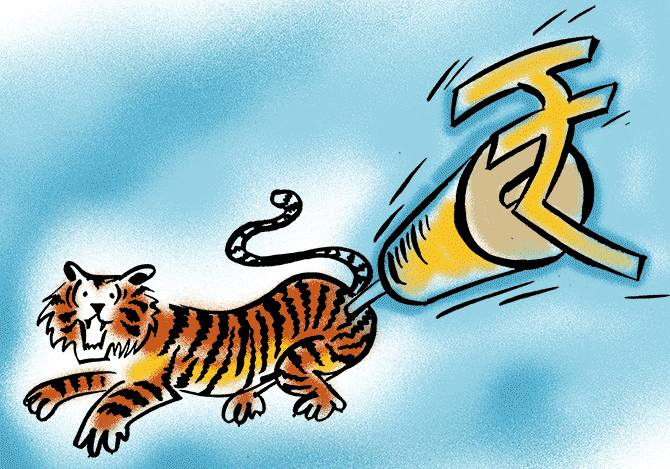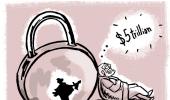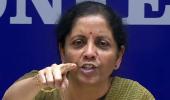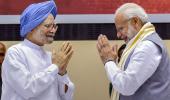The multilateral bank, however, expects the growth to pick up to 6.5 per cent next year on supportive government policies.
Illustration: Dominic Xavier/Rediff.com

Asian Development Bank (ADB) on Wednesday lowered India's economic growth forecast for FY2019 to 5.1 per cent on slowing job prospects, rural distress exacerbated by poor harvest and credit crunch.
The multilateral bank, however, expects the growth to pick up to 6.5 per cent next year on supportive government policies.
"In South Asia, India's growth is now seen at a slower 5.1 per cent in fiscal year 2019 as the foundering of a major non-banking financial company in 2018 led to a rise in risk aversion in the financial sector and a credit crunch.
"Also, consumption was affected by slow job growth and rural distress aggravated by a poor harvest.
“Growth should pick up to 6.5 per cent in fiscal year 2020 with supportive policies," the ADB said in a supplement to the Asian Development Outlook 2019 Update.
Earlier in September, it had trimmed India's gross domestic product (GDP) growth to 6.5 per cent from the earlier estimate of 7 per cent.
For FY2020, it had projected a GDP growth of 7.2 per cent, which now has been cut to 6.5 per cent.
The Reserve Bank of India last week in its bi-monthly monetary policy review has cut India's GDP forecast to 5 per cent from 6.1 per cent citing weak domestic and external demand.
While the International Monetary Fund (IMF) slashed India's GDP growth projection to 6.1 per cent from 7 per cent, the World Bank lowered its estimate to 6 per cent.
The GDP growth forecast for South Asia for 2019 is also cut to 5.1 per cent from 6.2 per cent earlier and to 6.1 per cent from 6.7 per cent next year (2020), the ADB said.
"These revisions reflect lowered growth projections for India at 5.1 per cent in fiscal year 2019 (FY2019, ending 30 March 2020) and 6.5 per cent in FY2020 (fiscal ending in March 2021)," ADB said in the supplement.
The ADB said India's growth in the first half of the current fiscal has slipped to 4.8 per cent as expansion in private consumption slowed to 4.1 per cent and in investment to 2.5 per cent.
Having already slowed year on year from 5.8 per cent in the fourth quarter of 2018-19 to 5 per cent in the first quarter of 2019-20, growth in India fell further to 4.5 per cent in the second quarter of FY2019-20, the lowest quarterly rate since the last quarter of 2012, it added.
The ADB said the domestic demand has weakened significantly since late 2018.
Some tentative signs have emerged that the Indian economy is stabilising in the second half of FY2019 (ending March 2020), it said.
"Growth is expected to benefit from government policy measures in recent months, notably a corporate tax cut, divestment from some state-owned enterprises, capital injections into public banks, and policy rate reduction by a total of 135 basis points, with further measures possible in the coming months, said the ADB update supplement.
Growth in FY2020 is likely to recover thanks to this support, low oil prices, and a weakening rupee, but risks to the projections remain tilted to the downside, it said on India.
In the rest of South Asia, economic growth is on track to meet forecasts, it said.
The growth rate in China is now expected at 6.1 per cent this year and 5.8 per cent next year due to trade tensions and slowdown in global activity coupled with weaker domestic demand, with family wallets being hit by pork prices that have doubled relative to a year ago, ADB said.
"Growth could accelerate, however, should the United States and the People's Republic of China (PRC) come to an agreement on trade," ADB said on China.
In September, ADB had forecast GDP growth of 6.2 per cent in 2019 and 6 per cent in 2020.
“While growth rates are still solid in developing Asia, persistent trade tensions have taken a toll on the region and are still the biggest risk to the longer-term economic outlook. Domestic investment is also weakening in many countries, as business sentiment has declined," said ADB chief economist Yasuyuki Sawada.
Inflation, on the other hand, is ticking up on the back of higher food prices, as African swine fever has raised pork prices significantly, Sawada said.











 © 2025
© 2025